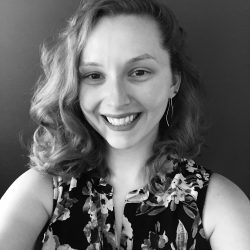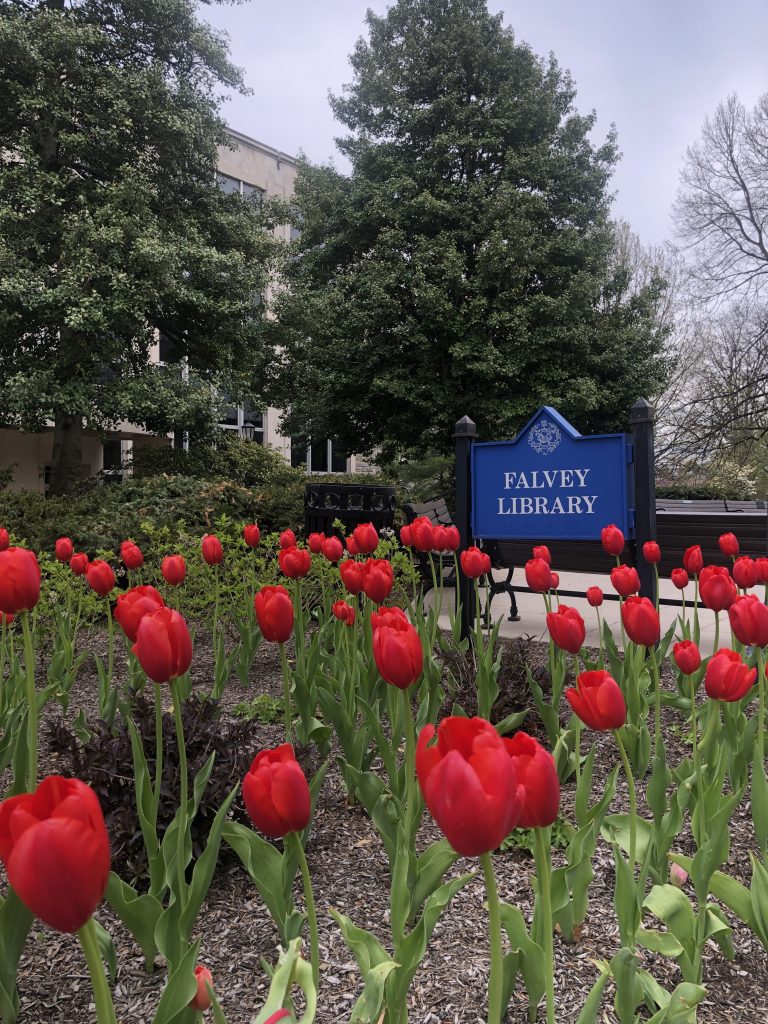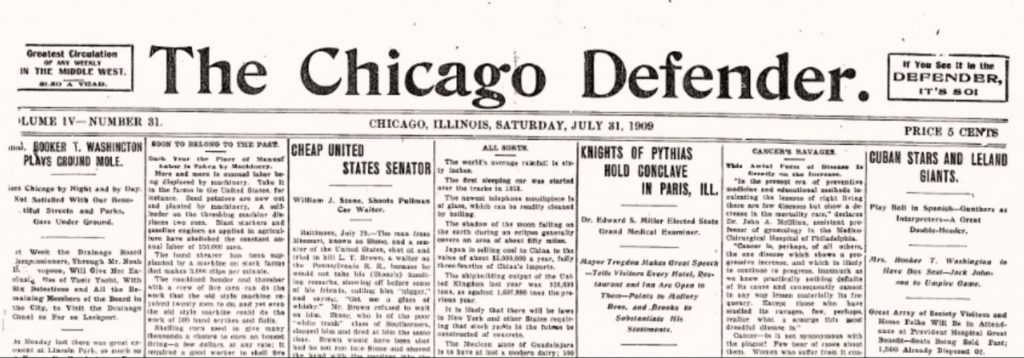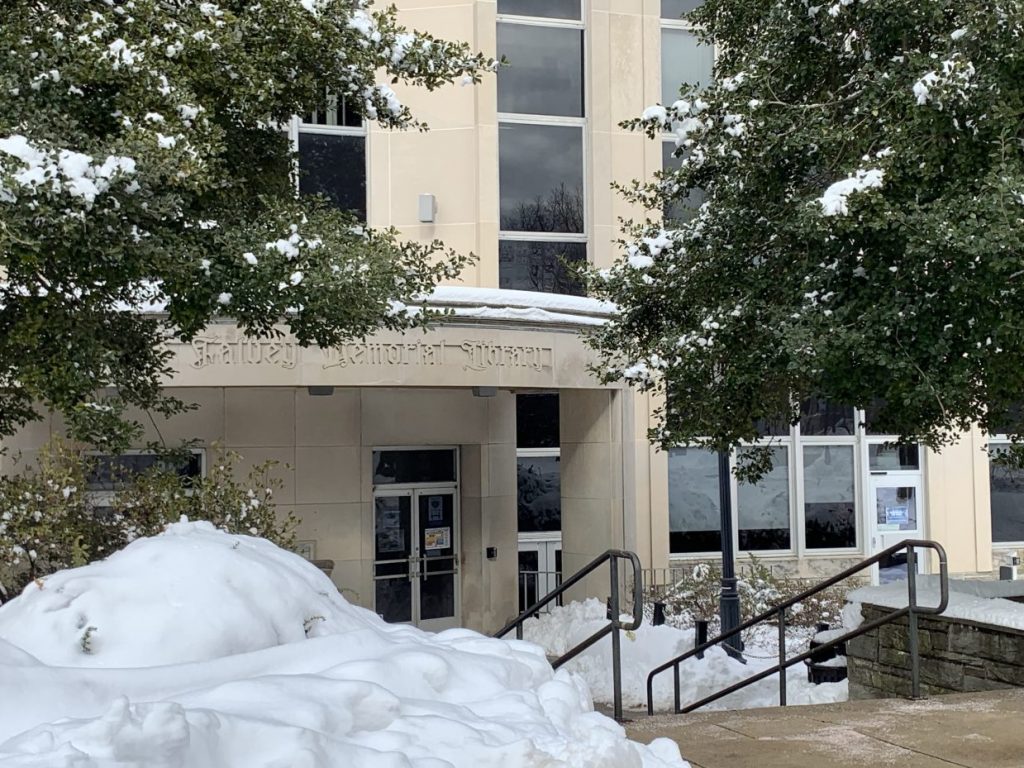That’s a Wrap! Love Data Week 2024
By Nicole Daly
We are once again wrapping up an amazing week of data related events at Falvey Library. There was a lot planned out for Love Data Week this year, including the new Falvey Data Visualization Competition. This year we had submissions from across the colleges and we were able to celebrate and recognize four marvelous students in their work with data visualization. Below we have linked to each of their award-winning projects.
2024 Award Winners

Nicole Daly, Social Sciences Librarian, and Melissa Wright
Melissa Wright – First Place Undergraduate
- Project Title: “Compare your Lifts!”
- Available through the Shiny app.
- An app developed to show power lifters how they compare to others.

Shealyn Murphy – Runner-up Undergraduate
- Project Title: “Agriculture’s Impact on the Spread of Rift Valley Fever Virus”
- Sign in with your Villanova credentials to view.
- A geospatial area analysis exploring the relationships between land-use and the spread of Rift Valley Fever Virus (RVFV).

Stephen M. Strader, PhD, Amanda Wagner, and Nathaniel B. Weston, PhD
Amanda Wagner – First Place Graduate
- Project Title: “Vulnerability to Tornado Hazards”
- Available through ArcGIS.
- A story map that breaks down different areas’ vulnerability to tornados, looking at past data on tornado warnings, impacts, and risk factors.

Jonah Miles Gavino
Jonah Miles Gavino – Runner-up Graduate
- Project Title: “J&S Publishers 2020 Reimbursements Overview”
- Sign in with your Villanova credentials to view.
- A detailed risk analysis of a fictional publishing company, which allows users to flag employee reimbursements based on set risk factors.
Thank you for joining us in celebrating another year of data appreciation. Hopefully, you were able to learn about some of the wonderful resources available to Villanova affiliates through Falvey Library and how students on campus are working with data. For more information about different data resources Falvey offers check out the Falvey Library blog, where we have been posting all week about data and Library resources.
Join us tomorrow for our two rescheduled events, Intro to Python and Excel for the Humanities.
To find out more about how Falvey has celebrated Love Data Week in the past check out our event page. Through this page you’ll be able to find links to past events, read some of our data related blog posts, and see how far reaching our events have been in past years. This page will provide you an overview of what Love Data Week is and how we’ve celebrated it in the past.
Save the date for next year’s Love Data Week 2025, which will be from Feb. 10-14, 2025.
 Nicole Daly is Communication Librarian at Falvey Library.
Nicole Daly is Communication Librarian at Falvey Library.








